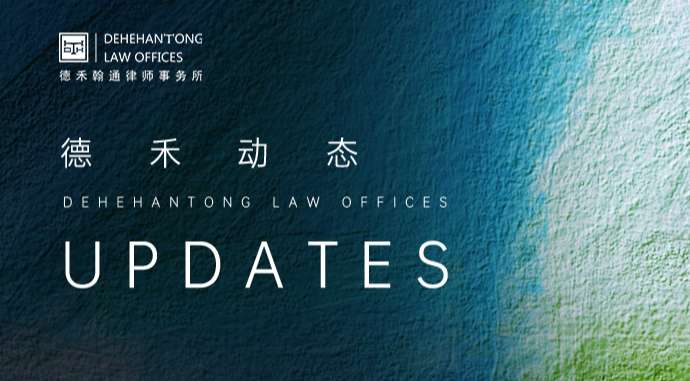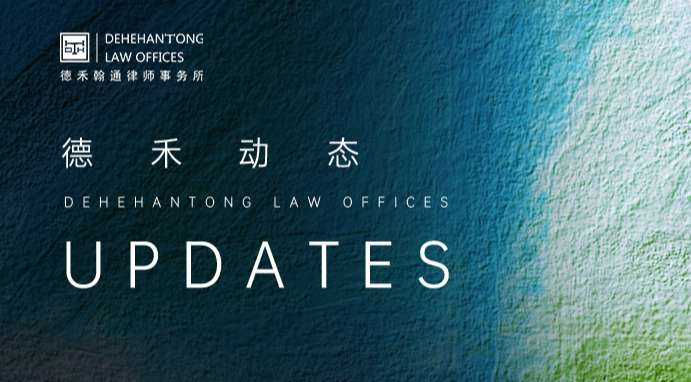Two high on handling the judicial interpretation of the highlights of the interpretation
As the most severe means to solve the problem of difficult execution, the crime of refusing to execute the judgment is of great significance to protect the legitimate rights and interests of the person applying for execution and to clarify the boundary of the criminal responsibility of the person subject to execution. The Interpretation of the Supreme People's Court and the Supreme People's Procuratorate on Several Issues concerning the Application of Law in Handling Criminal Cases of Refusal to execute Judgments and rulings (Interpretation No. 13 (2024)) came into force on December 1, and the interpretation is a detailed adjustment of the rules on the determination of refusal to execute crimes. This paper will give a comprehensive interpretation of the procedural provisions, the identification of the requirements and the highlights of the relevant amendments.
01.Further clarify the subject of crime
Judicial interpretation
Article 1 If a person subject to enforcement, a obligor to assist in enforcement, a guarantor, or any other person who has the obligation to perform the judgment or written order of a people's court refuses to perform the judgment or written order while he has the ability to do so, if the circumstances are serious, he shall be punished for the crime of refusing to perform the judgment or written order in accordance with the provisions of Article 313 of the Criminal Law.
The persons who have the obligation to perform as mentioned in this Interpretation include natural persons and units.
Article 2 The term "judgments and written orders of the people's courts" as provided for in Article 313 of the Criminal Law refers to judgments and written orders made by the people's courts in accordance with the law that have enforcement content and have taken legal effect. The rulings made by the people's court for the execution of payment orders, effective conciliation statements, arbitration awards, notarized creditor's rights documents, etc. in accordance with the law are rulings provided for in this Article.
Article 8 Where an outsider refuses to execute the judgment or order of a people's court, knowing that the person who is obligated to execute the judgment or order has the ability to execute it, colludes with him to assist in concealing or transferring property and other acts of refusal to execute the judgment or order, so that the judgment or order cannot be executed, he shall be treated as an accomplice in the crime of refusing to execute the judgment or order.
Although Article 313 of the Criminal Law clearly defines unit crime, in practice, there are a large number of cases in which the unit is the final base of the person subject to execution, but there are few cases in which it is identified as the crime. Most judgments still take the person directly responsible as the main body of the crime, and judicial interpretation further emphasizes that the unit is the person who has the execution obligation, in order to promote the execution of the unit. As for "judgments and rulings of the people's Court", it should be noted that payment orders, effective conciliation statements, arbitration awards, notarized creditor's rights documents do not belong to the judgments and rulings of the people's court, and the court's ruling for the execution of the above-mentioned documents in accordance with the law constitutes this crime.
02.Add other ability to execute, but refuse to implement the "serious circumstances" enumerated provisions
Judicial interpretation
Article 3 If a person under the obligation of execution has the ability to perform it but refuses to perform it, and in any of the following circumstances, it shall be identified as "other serious circumstances in which he has the ability to perform it but refuses to perform it" as provided for in the interpretation of Article 313 of the Criminal Law by the Standing Committee of the National People's Congress:
(1) Maliciously disposing of the rights and interests of property without compensation by giving up the rights and interests, or maliciously extending the time limit for the performance of the rights and interests due, or disposing of the rights and interests of property by means of false reconciliation, false transfer, etc., making the judgment or order unenforceable;
(2) committing acts of maliciously reducing the liability property by transferring the property of another person at an obviously unreasonable high price, providing guarantees for the debts of another person, etc., making the judgment or order impossible to enforce;
(5) refusing to deliver the property or tickets specified in the legal document or to move out of the house or land after taking compulsory measures such as fines or detention, so that the judgment or order cannot be executed;
(6) refusing to perform obligations such as assisting in the exercise of personal rights and interests after taking compulsory measures such as fines or detention, so that the judgment or order cannot be executed and the circumstances are egregious;
In addition to the cases already listed in the 2020 judicial interpretation, the new provisions are further detailed in the refusal to execute, and are linked to the malicious disposition of property in the civil law; The additional fifth and sixth paragraphs provide that it can be expected that the large probability of non-execution after the court has taken compulsory measures such as fines and detention in subsequent practice can be filed to deal with the crime of refusal.
03.Clarify the specific circumstances of "particularly serious circumstances" - focusing on the severity of acts that hinder execution
Judicial interpretation
Article 4 Where a person who has the obligation to perform has the ability to perform but refuses to perform, and has one of the following circumstances, it shall be deemed to be in "particularly serious circumstances" :
(1) impeding execution by means of false litigation, false arbitration, false notarization, etc., so that the judgment or order cannot be enforced;
(2) gathering crowds to attack the execution site, making the execution work impossible;
(3) physically attacking the executive by means of violence such as siege, detention or beating, making it impossible to carry out the execution;
(4) the refusal to execute causes the person applying for execution to commit suicide, self-harm or other serious consequences;
(5) Other particularly serious circumstances.
The "extremely serious circumstances" of the crime of refusing to execute the judgment was added to the Criminal Law Amendment (IX), making the maximum statutory penalty for this crime changed from three years to seven years. However, the specific application situation has not been specified. Previously, some local judicial documents have explained the "circumstances are particularly serious". For example, in Guangdong Province's Guidelines on Handling Refusal to Enforce Judgments and Rulings [1], cases with some consequences are considered to be particularly serious; The "Opinions on Handling Criminal Cases of Refusing to Execute Judgments and rulings" of Sichuan Province is similar to the provisions of Guangdong Province; Fujian Province's "Guiding Opinions on Handling Several Issues of Refusing to Execute Judgments and rulings in Criminal Cases" [2] provides the specific amount standard; The Minutes of the Meeting of Zhejiang Province on Several Issues Concerning the Punishment of the Crime of Refusing to Enforce the Law [3] provides a higher specific amount standard and specific circumstances. In general, the previous local judicial interpretation mainly focused on violent means to resist enforcement and cause significant losses in the amount of creditors.
Compared with the local interpretation, the two high judicial interpretations have given stricter standards for the application of "particularly serious circumstances". The absence of local limits on the amount of the specific subject matter that makes enforcement impossible mainly focuses on the severity of the obstruction to enforcement itself.
04.Change the starting time for refusing to execute
Judicial interpretation
Article 6 Where a perpetrator, in order to evade the obligation of execution, commits acts such as concealing or transferring property after the commencement of the proceedings and before the judgment or order takes effect, and refuses to execute after being verified after the judgment or order takes effect, it may be determined that he has the ability to execute but refuses to execute, and if the circumstances are serious, he shall be investigated for criminal responsibility for the crime of refusing to execute the judgment or order.
After the commencement of the litigation referred to in the preceding paragraph, it generally means after the defendant has received a notice of response from the people's court.
Before the introduction of this new judicial interpretation, there is no dispute that the refusal to execute after the execution of the case constitutes the crime of refusing to execute, but there is a dispute that the refusal to execute before the execution of the case can be investigated for the criminal responsibility of the crime of refusing to execute. There are generally four viewpoints. The first one is the pre-litigation theory, which holds that the time node of refusal to execute should start from before the lawsuit; The second viewpoint is the theory of the beginning of the lawsuit, that is, the time node of the refusal to execute is the beginning of the lawsuit; The third point of view is the validity theory, that is, the time node that refuses to execute is after the judgment document takes effect; The fourth point of view is the application for execution, which holds that the time node from which the execution starts should be after the execution procedure begins. The mainstream view of judicial practice generally adopts the validity theory (Shanghai No. 1 Intermediate People's Court has issued a special article), the reason is that the enforcement power of effective legal instruments is not generated after entering into the enforcement procedure, but from the date of effective legal instruments.
This judicial interpretation adopts the second type of lawsuit beginning to say that the starting time of refusing to execute will be advanced to the defendant after receiving the notice of response to the people's court. That is to say, a defendant who transfers property after knowing that the case is filed may be suspected of refusing to commit the crime. This provision seems to put forward higher requirements for fulfilling the enforcement obligations according to law, but the author thinks that there are many problems in it. First of all, the assisting obligor, as the subject of refusal, does not know the situation of the case at the beginning of the lawsuit, which is inconsistent with the principle of subjective and objective consistency. Secondly, before the judgment or ruling takes effect, because the relationship of rights and obligations has not been determined, the perpetrator has carried out the transfer, concealment or malicious damage, transfer of property at a low price and other acts against the future execution, it is difficult to explain that it has the intention of refusing to perform, after all, it has not been determined by the effective judgment document to bear the obligation. Thirdly, it is more difficult to practice the starting time in advance, and the causality is more difficult to prove. Due to the long process time of most civil cases, the long time span from the beginning of litigation to compulsory execution, and the large disputes in some cases, it is difficult for the defendant to establish a causal relationship in criminal law with the unenforceable consequences caused by the malicious intent of the defendant who has the ability to execute but does not execute, but increases the burden of proof on the plaintiff.
05.Refine the applicable standards from mitigating circumstances
Judicial interpretation
Article 11 An act of refusing to execute a judgment or written order as provided for in Article 313 of the Criminal Law shall not be considered a crime if the circumstances are significant, minor and the harm is not significant; If, before a public prosecution is instituted, all or part of the enforcement obligations are fulfilled, and the circumstances of the crime are minor, prosecution may not be instituted according to law. If, before the judgment is pronounced in the first instance, he fulfils all or part of his obligations of execution, and the circumstances of the crime are minor, he may be given a lighter punishment or exempted from punishment according to law.
As a whole, the judicial interpretation still encourages the person subject to execution to actively perform the execution obligation, which is alleviated to varying degrees at different stages. Even if the person slightly performs part of the obligation before the prosecution is initiated, he may not Sue. It can be seen that helping the victim recover the loss is more important than the purpose of combating the disruption of judicial order.
The new judicial interpretation is a new solution that is difficult to implement in the current practice, but it is worth noting that the judicial interpretation has retroactive effect, and the refusal to implement before the regulation takes effect can also be dealt with in the form of public prosecution or private prosecution. What effect will be caused by the linkage between courts and public security in the field of enforcement is worth our attention.
footnote
[1] Guangdong Province "Guidelines on Handling Criminal Cases of Refusal to Execute Judgments and Rulings" (Guangdong High Law Development [2018] No. 3)
Article 3 If a person under the obligation of execution fails to execute a judgment or order of a people's court under any of the following circumstances, it may be deemed to be under "particularly serious circumstances" as provided for in Article 313 of the Criminal Law of the People's Republic of China:
(1) using violence to besiege or beat an executive, causing one or more minor injuries or two or more minor injuries;
(2) gathering a crowd to make noise, storm the execution site, or insult or besiege the execution personnel, causing particularly bad social impact;
(3) damaging official vehicles and other execution equipment, causing direct economic losses of RMB 50,000 yuan or more;
(4) causing the person applying for execution to commit suicide, resulting in death or serious disability, or causing the enterprise applying for execution to cease production or close down, seriously affecting social stability;
(5) Other particularly serious circumstances.
[2] Fujian Province, Guiding Opinions on Handling Several Issues of Refusing to Execute Judgments and Adjudication of Criminal Cases, Mingao Law [2018] No. 204
Article 18 "Refusal to execute a judgment or order, under particularly serious circumstances" includes the following circumstances:
(1) the amount of property hidden, transferred, intentionally damaged or transferred without compensation by the person subject to execution reaches 30% of the amount of the subject matter for execution, except for the amount less than 250,000 yuan for individuals and 1 million yuan for units;
The guarantor or the person subject to enforcement hides, transfers, intentionally destroys or transfers the property that has been provided security to the people's court up to 30% of the amount of the guarantee, except for the property that does not amount to 250,000 yuan for an individual or 1 million yuan for a unit;
(2) claims for alimony, maintenance, medical expenses and other cases, and the economic loss of the applicant reaches 150,000 yuan;
(3) where the person applying for enforcement in a case of seeking alimony, child support, medical expenses, etc., suffers serious injury or death due to the refusal of the person subjected to enforcement, the guarantor, or the obligor assisting in enforcement;
(4) Other particularly serious circumstances.
[3] Minutes of the Meeting on Several Issues Concerning the Punishment of the Crime of Refusing to Enforce according to Law, Zhejiang High Law [2018] No. 112
12. Criteria for judging particularly serious circumstances
Particularly serious circumstances as provided for in Article 313 of the Criminal Law refer to:
(1) The person responsible for the enforcement obligation has the ability to perform but refuses to perform, resulting in the unenforceable amount of the court judgment or order reaching more than 5 million yuan;
(2) The person under the enforcement obligation refuses to execute the judgment or order of the court, causing the creditor to suffer particularly heavy losses or other extremely serious consequences;
(3) The person who has the obligation to execute refuses to execute the judgment or order of paying alimony, alimony, upbringing expenses, pension, medical expenses, labor remuneration, compensation for personal damage, etc., which has the ability to execute, causing the death of the party applying for execution, or causing adverse social impact.
Recommended Information
-
UpdatesDehehantong helped Shanghai Lianrui Financial Leasing Co., Ltd. to successfully issue the first phase of 2024 green Directional asset-backed notes2024-11-21
-
ArticlesIntroduction to the U.S. Export Control Regulations (EAR)2024-11-20
-
UpdatesDehehantong helped the listed company "Heryi Pharmaceutical" to implement the 2024 equity incentive plan smoothly2024-11-20
-
ArticlesIP Dream: Li Ziqi's business Miracle and legal risk2024-11-20
-
UpdatesService enterprise network data security, Dehehantong and Tianxiang Information reached a network data security business strategic cooperation agreement2024-11-15















